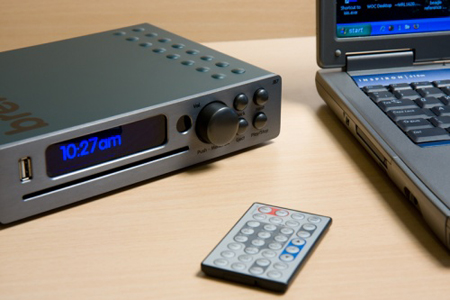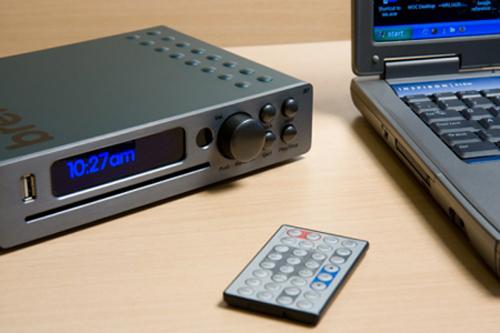Government set to relax copyright rules
The Government has announced plans to give consumers greater copyright freedom when copying films, music, books, games and photographs for their own personal use


The Government has announced plans to give consumers greater copyright freedom when copying films, music, books, games and photographs for their own personal use on to smartphones, tablets and computers.
However, the British Video Association (BVA) has confirmed that copy protection on DVDs and Blu-rays will still be allowed.
Director General Lavinia Carey says: "Today's Government announcement on new copyright exceptions goes some way to answering our concerns about the original Hargreaves recommendations. The BVA is pleased that copy protection on DVDs and Blu-rays will still be allowed and can't be legally over-ruled."
A spokesperson for the Department for Business, Innovation & Skills adds: "Film and video companies will remain free to use copy protection on their products."
Interestingly, they add: "However, individual consumers will be able to complain to the Secretary of State if they feel copy protection is too restrictive, and the Secretary of State will be able to intervene, if required, to ensure that consumers are able to benefit from the exceptions provided by law."
Under current legislation ripping (copying) of music and video is technically illegal, although 'format shifting' has become commonplace as the technology to do so has become widely available on a broad range of devices.
Business Secretary Vince Cable has given details of the changes, which form part of the Government's response to creating a modern, robust and flexible copyright framework, in response to the Hargreaves Report on intellectual property and growth.
Get the What Hi-Fi? Newsletter
The latest hi-fi, home cinema and tech news, reviews, buying advice and deals, direct to your inbox.
New measures include provisions to allow copying of works for individuals' own personal use, parody and for the purpose of quotation, says the Department for Business Innovation and Skills. They'll come into force from October 2013.
This will allow people to use copyright works for a variety of purposes without permission of the copyright owner, while also protecting the interests of authors and rights owners.
Vince Cable says: "Making the intellectual property framework fit for the 21st century is not only common sense but good business sense... We feel we have struck the right balance between improving the way consumers benefit from copyright works they have legitimately paid for, boosting business opportunities and protecting the rights of creators."
In response to the Hargreaves Report, the Government will make changes to:
* Private copying – to permit people to copy digital content they have bought onto any medium or device that they own, but strictly for their own personal use such as transferring their music collection or eBooks to their tablet, phone or to a private cloud
* Education – to simplify copyright licensing for the education sector and make it easier for teachers to use copyright materials on interactive whiteboards and similar technology in classrooms and provide access to copyright works over secure networks to support the growing demand for distance learning handouts for students
* Quotation and news reporting – to create a more general permission for quotation of copyright works for any purpose, as long as the use of a particular quotation is “fair dealing” and its source is acknowledged
* Parody, caricature and pastiche – to allow limited copying on a fair dealing basis which would allow genuine parody, but prohibit copying disguised as parody
* Research and private study – to allow sound recordings, films and broadcasts to be copied for non-commercial research and private study purposes without permission from the copyright holder. This includes both user copying and library copying
* Data analytics for non-commercial research – to allow non-commercial researchers to use computers to study published research results and other data without copyright law interfering;
* Access for people with disabilities – to allow people with disabilities the right to obtain copyright works in accessible formats where a suitable one is not already on the market
* Archiving and preservation – to allow museums, galleries, libraries and archives to preserve any type of copyright work that is in their permanent collection which cannot readily be replaced
* Public administration – to widen existing exceptions to enable more public bodies to share proactively third party information online, which would reflect the existing position in relation to the use of paper copies
The Government says these changes could contribute at least £500m to the UK economy over 10 years, and perhaps much more from reduced costs, increased competition and by making copyright works more valuable.
However, the proposed changes have not been without controversy, particularly from the film industry, as we reported last year.
Other countries have already amended their copyright laws to make ripping of discs legal for personal use – most notably the US, where the Digital Millenium Copyright Act now has a 'fair use' clause that's enabled American consumers to make copies of CDs, DVDs and Blu-rays.
Andy is Global Brand Director of What Hi-Fi? and has been a technology journalist for 30 years. During that time he has covered everything from VHS and Betamax, MiniDisc and DCC to CDi, Laserdisc and 3D TV, and any number of other formats that have come and gone. He loves nothing better than a good old format war. Andy edited several hi-fi and home cinema magazines before relaunching whathifi.com in 2008 and helping turn it into the global success it is today. When not listening to music or watching TV, he spends far too much of his time reading about cars he can't afford to buy.

